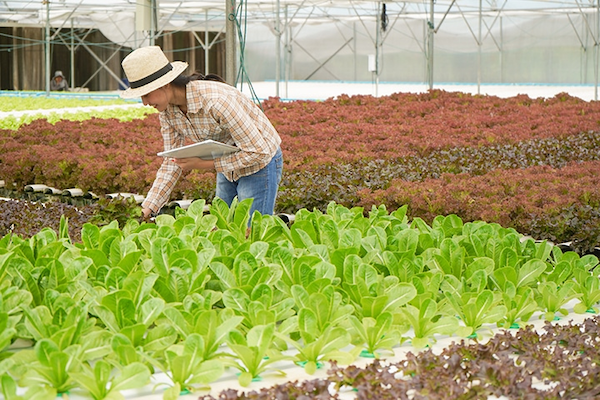
The use of artificial intelligence (AI) in food manufacturing has been revolutionizing the industry, providing significant benefits in terms of quality control, production efficiency, and, most importantly, food safety.
In the coming years, AI is expected to have an even greater impact on food safety from farm to table, helping to prevent food contamination, reduce the spread of foodborne illness, and increase the overall safety of the food supply chain. In this post, we’ll explore the exciting possibilities that AI holds for the future of food safety in 2023 and beyond.
AI And Food Safety In Manufacturing: Impact And Future Trends
The U.S. Food and Drug Administration (FDA) has recognized significant potential in artificial intelligence, as outlined in its New Era of Smarter Food Safety Blueprint. The FDA expects AI to play a key role in protecting consumers from food safety issues, ushering in an important shift in regards to foodborne illness in the U.S and abroad.
One of the most promising ways AI can be applied toward food safety is predictive analytics. AI predictive analytics uses machine learning algorithms to analyze vast amounts of data and identify patterns and potential issues. Predictive models use data from a range of sources, including production processes, ingredients, temperature sensors, weather patterns, shipment records, supplier information, and customer complaints to predict the likelihood of food contamination and foodborne illness. By analyzing this data, AI systems are able to not only identify potential problems, but provide recommendations for improvement, helping manufacturers to proactively address any potential risks to food safety.
As modern food supply chains grow increasingly complex, AI will become more important for manufacturers looking to increase traceability across the supply chain. AI-powered traceability systems can track food products from farm to table, closely monitoring processes and shipments at each stage of the supply chain.
A major advantage of AI in food manufacturing is the ability to automate many of the processes involved in food safety, helping to reduce the risk of human error and ensure that food safety protocols are followed consistently. The implementation of AI-powered computer vision technology can aid in this as well, monitoring food processing facilities to ensure that staff adhere to safety standards during production. Computer vision technology is also able to quickly and accurately identify contaminants in food, such as foreign objects or spoilage, that may pose a risk to consumers. In addition, computer vision technology can detect any potential issues with packaging, labeling, or other critical elements that could impact the safety of the food.
One of the biggest benefits of using AI in food manufacturing is the ability to detect and prevent food contamination in real-time. With traditional methods, it can take days or even weeks to detect a problem, by which time the contamination may have spread throughout the food supply chain. With AI, however, problems can be identified and addressed almost immediately, reducing the risk of foodborne illness and increasing consumer confidence in the safety of the food they consume.
AI is still developing as a technology, but it’s already having a significant impact on the food and beverage industry, one that is sure to grow in 2023 and beyond. As AI becomes more sophisticated, and as more food manufacturers adopt AI-powered technologies, we can expect to see even greater benefits in terms of improved food safety and reduced risk to consumers — and perhaps even a future where food recalls are a thing of the past.
Securing The Next Level In Food Safety With AI-Powered Solutions
Manufacturers looking to use AI-powered technology to elevate food safety levels need a trusted partner in Industry 4.0 Smart Manufacturing.
As the leader in Transformational Intelligence for Manufacturers, ThinkIQ provides companies with a complete overview of operations, transforming their manufacturing process through the 5 steps required to reach Industrial 4.0 Smart Manufacturing capabilities. Each stage offers valuable improvements to manufacturers, whether by optimizing supply chain or asset traceability, or by supplying predictive analytics.
ThinkIQ’s enterprise cloud-based software platform combines existing disparate and siloed supply chain data with a unique modeling technology to detect material movements. ThinkIQ contextualizes data, using advanced AI and ML to correlate events over time to enable end-to-end granular supply chain visibility.
AI is revolutionizing food safety, and is proving to be a game-changer as well for sustainability, compliance, efficiency, yield, quality, and a manufacturer’s bottom line. ThinkIQ harnesses the power of AI in its next generation manufacturing data platform that is transforming manufacturing.
Take control of food safety in your manufacturing operations in 2023 — Reach out to a ThinkIQ expert today to start transforming your enterprise with our advanced AI-driven solutions. You can also download our new eBook, “Using Computer Vision to Fill Manufacturing and Warehousing Blind Spots with Actionable Data” to learn more about how to gain greater visibility into your manufacturing process.


